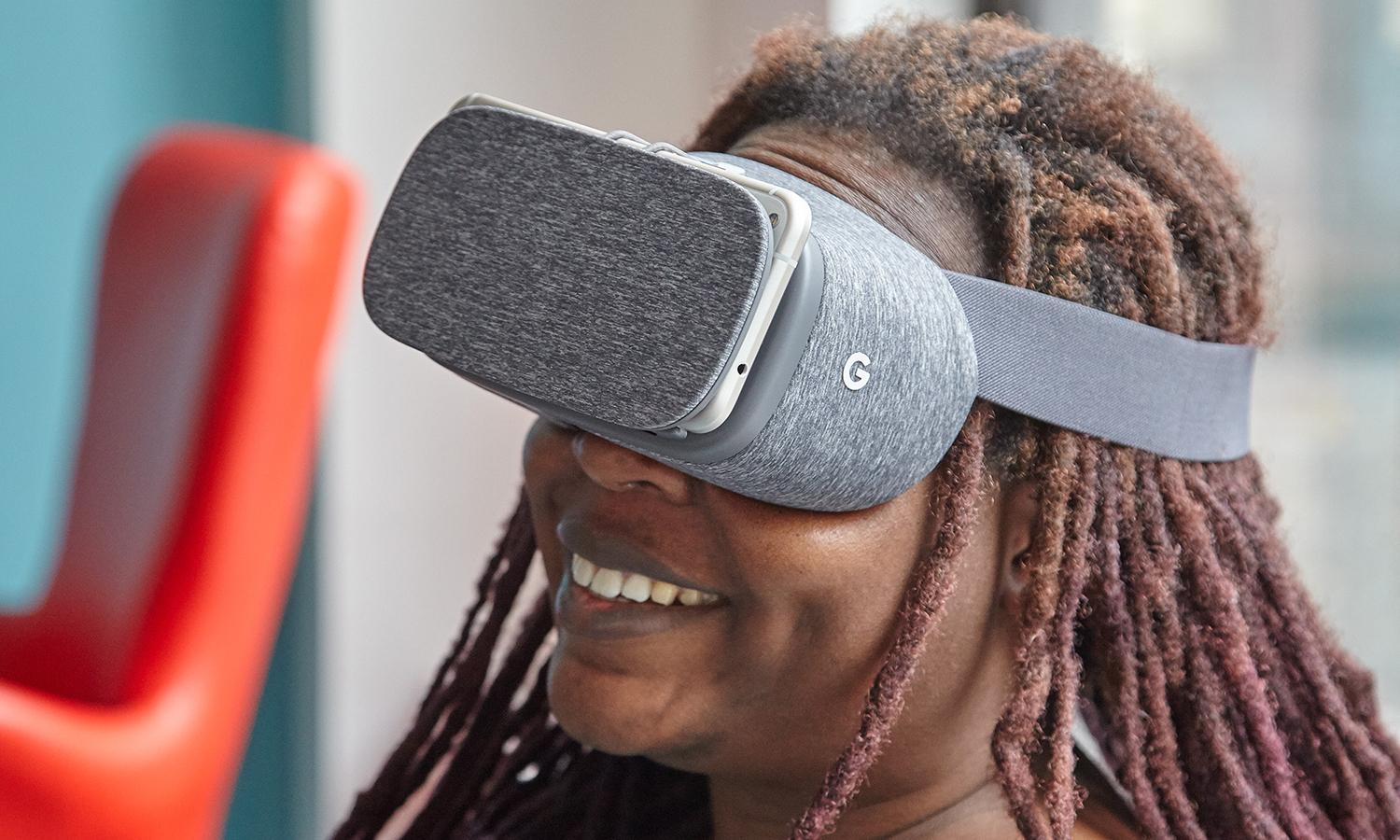Google AR headset reportedly coming — everything we know so far
Everything we know about Google's rumored AR headset

With Apple and Meta both building new AR/VR headsets, it's no wonder that Google is making one of its own. Dubbed Project Iris, this rumored headset would provide wearers with an augmented reality view of the world. Here's everything we've heard about the project so far and what we'd want to see out of a device.
Latest Google AR Glasses news (updated May 6)
- Google has acquired Raxium, a micro LED display developer that could give its AR glasses a major competitive advantage
Google AR headset: What is it?
Pretty much everything we know, or what we think we know, about Project Iris comes from a story on The Verge. According to the article, the headset will use cameras to capture the world around the wearer, and combine that with computer-generated images to create an augmented reality view — which pretty much describes any AR glasses.
The article goes on to state that it will use a custom Google processor, and potentially run on Android, though it's possible that Google is creating a custom operating system for the device.
The New York Times also noted in an article in December that Google was working on AR glasses, but didn't offer up any additional details. Also, a job listing from last year mentioned the company’s plans for an "innovative AR device."
Google's acquisition of Raxium, who claim to developed energy efficient and cost-effective micro LED displays, could also give it a serious advantage compared to competitive advantage.
Google AR headset: Rumored launch date
Google's headset is expected to launch in 2024, according to the article. However, it notes that the 2024 date is very optimistic, given that the headset is still very early in its development.
Google AR headset: Competitors
If and when the Google AR headset hits the market, it will undoubtedly come up against a number of competitors, including Apple's AR glasses as well as Apple's AR/VR headset, which could arrive by 2023. There's also the rumored Meta Quest Pro (a.k.a. Project Cambria), which would be different from the Oculus Quest 3 VR headset — both of which might appear in 2022 or 2023.
Sign up to get the BEST of Tom's Guide direct to your inbox.
Get instant access to breaking news, the hottest reviews, great deals and helpful tips.
Google AR headset: What we want to see
While it's still very early — we only have one report to go by at this point — there are a few things we'd like to see in Google's AR headset.
Something we'd want to wear
Please no repeat of Google Glasses. Wearables have come a long way since the company's earliest smart glasses. Between the Snap spectacles and Amazon's Echo Frames, smart glasses are starting to look more like regular glasses. While those examples don't have a built-in camera, the now-discontinued Focals by North — which was acquired by Google — are closer to what we might expect from a finished pair.
Great navigation
Considering all the work the company has put into Google Maps — including the augmented reality navigational features such as Live View — it would be ludicrous to imagine a pair of Google AR glasses that didn't have maps built into it.
A smarter smart assistant
It should also go without saying that any Google headset would have Google Assistant built in. However, we would want to see the Assistant have more location-aware features, so that it could proactively alert the wearer as they walked around.

Michael A. Prospero is the U.S. Editor-in-Chief for Tom’s Guide. He oversees all evergreen content and oversees the Homes, Smart Home, and Fitness/Wearables categories for the site. In his spare time, he also tests out the latest drones, electric scooters, and smart home gadgets, such as video doorbells. Before his tenure at Tom's Guide, he was the Reviews Editor for Laptop Magazine, a reporter at Fast Company, the Times of Trenton, and, many eons back, an intern at George magazine. He received his undergraduate degree from Boston College, where he worked on the campus newspaper The Heights, and then attended the Columbia University school of Journalism. When he’s not testing out the latest running watch, electric scooter, or skiing or training for a marathon, he’s probably using the latest sous vide machine, smoker, or pizza oven, to the delight — or chagrin — of his family.
